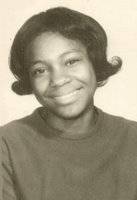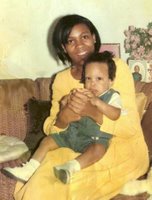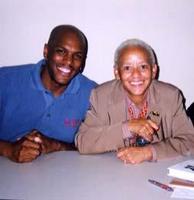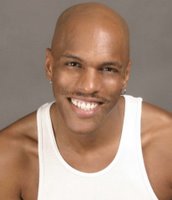|
Unpacking BaggageJust going through my luggage, clearing out some things to make way for enlightenment Wednesday, February 08, 2006Time to HealLast night I was priviledged to experience the brilliance of Dr. Joy DeGruy-Leary. This is a complete departure from what I had expected to say the day after her visit to our campus. To be honest, I was considering staying home. I went because I wanted the evening to be special for my students.  Upon first hearing about Dr. Leary I was bit perturbed. Her theory of Post Traumatic Slave Syndrome troubled me because I saw it being used as an excuse to explain why black folks can't get ahead, which offended me tremendously. My grandparents and others like them succeeded despite being slaves well into the 20th Century. What does the existence of Post Traumatic Slave Syndrome suggest about those successes? I was armed with a barrage of questions meant to challenge a sister and in the space of a two-hour lecture she answered them all without me opening my mouth. Dr. Leary, a social scientist with a Ph.D. in social work research, believes that many of the social, educational and health issues that plague many black Americans today are the result of generations of untreated trauma resulting from the atrocities of slavery and race-based violence and oppression. Answering critics who say slavery was too long ago to be connected to what ails us today, Dr. Leary insists that she is “not alone in recognizing the need for greater understanding and research with regard to historical multi-generational trauma. We must explore the consequences of extreme suffering on successive generations, if we are to heal as a people,” Leary professes. "Today, the legacy of slavery remains etched in our souls. Understanding the role our past plays in our present attitudes, outlooks, mindsets and circumstances is important if we are to free ourselves from the spiritual, mental and emotional shackles that bind us today, shackles that limit what we believe we can be, do and have. Understanding the Post-Traumatic Slave Syndrome plays in our evolution may be the key that helps to set us on the path to well-being.” -- Excerpted from Chapter 5, Slavery’s Children She made it most plain during her lecture with loads of historical data and examples of present-day behavior that give creedence to the theory. One of the examples she gave that really helped win me over illustrated how we often fail to celebrate our children because of slavery. She told a story of two mothers of sons -- one white and one black -- with equally impressive children. Both are accomplished in so many different ways. One day the mothers meet and white mama begins to go on and on about her son, very obviously bragging. Realizing that the black mother has just as much to be proud of she says, "Oh but you must be proud of Brandon too.." and goes on to talk about his many talents. The black mother lets her finish and says something like, "That's all well and good, but he was a handful this morning. You don't know what I go through." I can tell you how many times I've witnessed similar exchanges, even from my own grandmother! Dr. Leary went on to explain how this is a throwback to slavery. If a black mother was working on a plantation and the white master or overseer would comment on how well the child was growing, the mother would say something like, "Don't let looks fool you. He dumb, shiftless and can't work." The rationale -- her child wouldn't be sold away from her. Howev  er the child would often hear what was said and think mama wasn't proud of him. It's a behavior we never unlearned because there has never been a healing period in the existence of African Americans. Our trauma has never stopped. er the child would often hear what was said and think mama wasn't proud of him. It's a behavior we never unlearned because there has never been a healing period in the existence of African Americans. Our trauma has never stopped.I encourage EVERYONE to look for Dr. Leary in your area. Her talk will change your life. As I read her book I will be sharing. |
|


























































